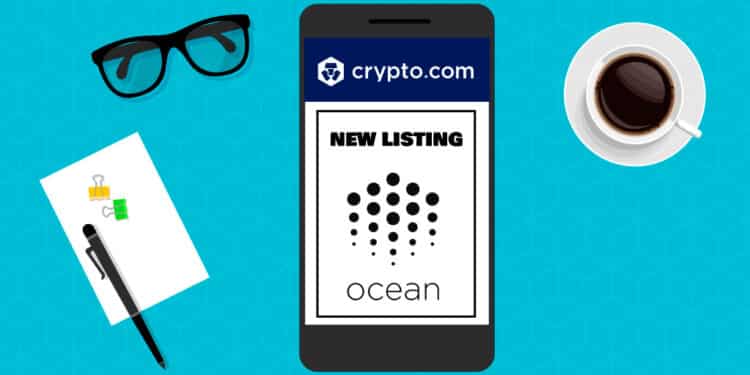Crypto.com, leading crypto & payments platform, is heading up to boost the global transition to cryptocurrency, and in this endeavor, it has started listing popular cryptocurrencies and stable coins on its platform; the most recent being the OCEAN.
With this listing of OCEAN on the Crypto.com app, the exchange joins a growing list of popular cryptocurrencies that are already listed on the crypto.com app and includes big assets like Bitcoin (BTC), Ether (ETH), Cardano (ADA), Chainlink (LINK), USD Coin (USDC), XRP, VeChain (VET), and CRO to name a few.
This new addition of OCEAN on the Crypto.com app will enable users to buy it at its true cost without paying any extra fees towards bank charges or credit card charges. Also, the users can, at any time, convert their preferred cryptocurrencies into fiat currencies on the Crypto.com platform, as it supports VISA card that enables them to use crypto across 60 million merchants all over the world that accepts cryptocurrencies. However, this is to be remembered that US residents cannot avail of this benefit of using OCEAN as it is not available there in the United States.
The OCEAN Protocol is a decentralized data exchange protocol used to unlock data for AI. It is particularly designed to scale up blockchain technology that will allow data to be sold and shared amidst an environment that is safe and transparent. In most of the cases, data, which is the most valuable digital resource for any blockchain network, remains unused for an indefinite period; Ocean Protocol helps in unlocking this hidden data and feed them into AI to derive important information.
As a current scenario, though most organizations nowadays have access to useful data, they do not have the trusted means to share it. Without this useful digital resource (data), AI cannot be applied to solve complex problems. The OCEAN protocol solves this problem through blockchain technology.
It connects data providers and consumers, thereby allowing data sharing while guaranteeing traceability, trust, and transparency for all stakeholders who are involved in it. It gives data owners full control over their data assets and frees them up from being stuck to any single marketplace.




